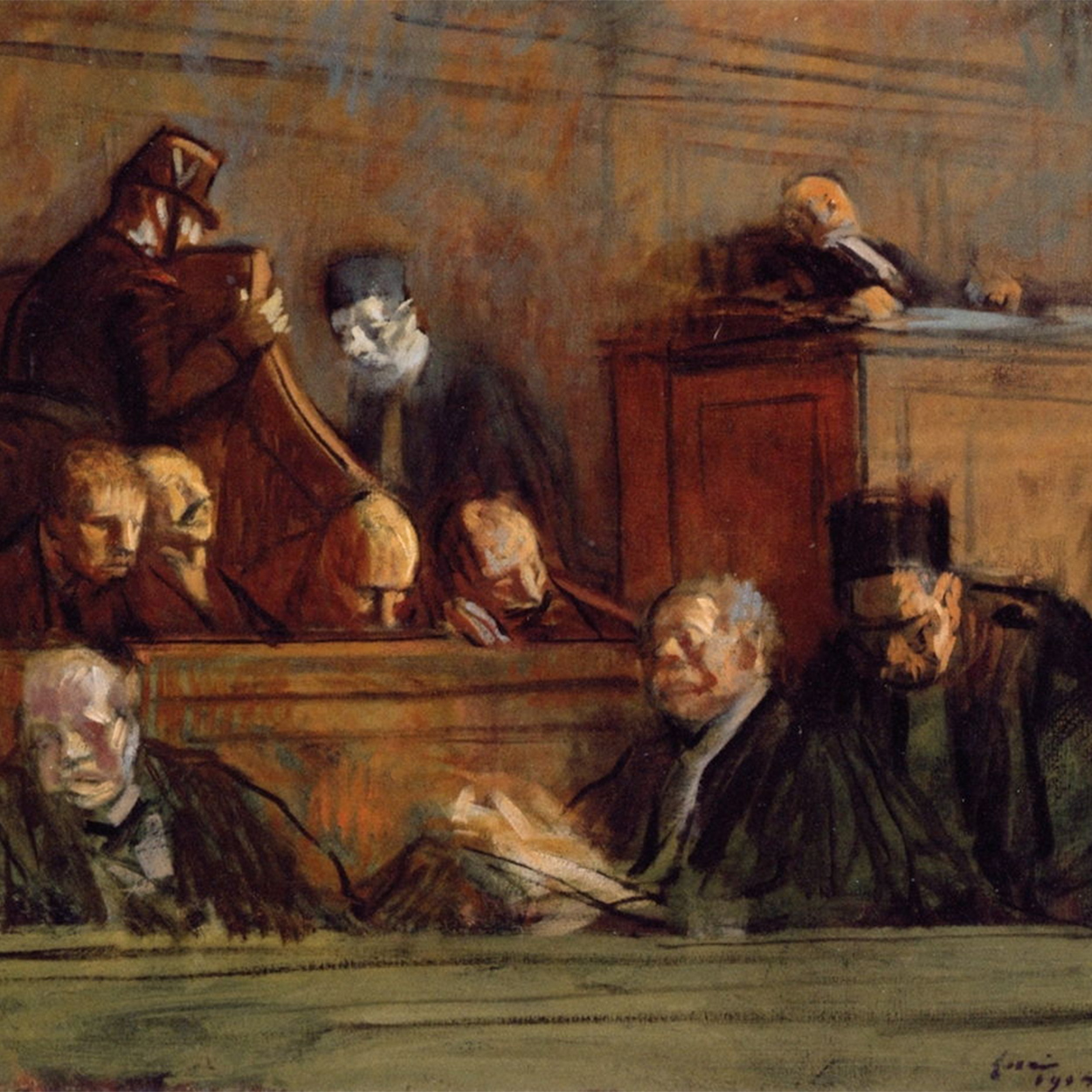Every semester, I walk into my classes at Brigham Young University on the first day and find myself confronted by a room full of eager, earnest, and bright young psychology majors. Many of these students are doing the best they can to prepare for the rigors of graduate school and then meaningful careers as psychotherapists or family and marriage counselors. After taking a quick moment to introduce myself, I share with my students a favorite quote of mine from a letter written by the famous author and Oxford professor C. S. Lewis. Almost without fail my students are shocked and confused by what Lewis had to say. Reactions range from simple bemused disbelief, accompanied by some dismissive chuckling, to outright anger and offense at the brazen foolishness of the quote and its implications. Needless to say, starting with this quote is a wonderful way to grab my students’ attention right out of the gate on Day One and engage them in a controversy that many of them didn’t even realize was a controversy. It usually takes me the remainder of the semester to get them to see the vital wisdom I see in Professor Lewis’s warning.
One of the more remarkable things about C. S. Lewis, and he was a man about whom there were many remarkable things, was his ability to keep up a very lively correspondence with a stunning number of people throughout his life. Lewis strove to respond to every letter he received, whether from a colleague, a friend, or just some admiring fan with questions about life, religion, or Narnia. In 1947, he received a letter (and a small package of “goodies”—remember, England was still suffering from the effects of World War II) sent to him by a Mrs. Frank L. Jones from Darien, Connecticut. Apparently, along with a number of her theological and philosophical questions, Mrs. Jones also desired to know Lewis’s thoughts on whether to seek out some professional help from a psychiatrist. We don’t know exactly what the full nature of her concern was because we don’t have her letter, but Professor Lewis’s response was notable enough that one routinely finds it mentioned in biographies and included in collections of his important quotes.
In response to Mrs. Jones’s earnest query, the good professor wrote:
“Keep clear of psychiatrists unless you know that they are also Christians. Otherwise, they start with the assumption that your religion is an illusion and try to ‘cure’ it: and this assumption they make not as professional psychologists but as amateur philosophers.”
Hopefully, you can see why so many of my bright-eyed young students, bent on a life spent doing the sorts of therapeutics that psychiatrists and psychologists do, helping others navigate this or that mental health issue, existential concern, or relationship problem, might not immediately appreciate such advice. After all, if there is one thing that my students tend to share coming into my class it is a sort of benevolent smugness. They are deeply convinced both that the road to really helping others requires training as a professional psychologist and that the discipline is capable of equipping them to truly understand and “fix” other people in a non-religious, genuinely scientific, and value-free way. The implication in Professor Lewis’s little note that the training they are so eager to obtain might be in a profession that actually views religious belief as an illusion, or worse yet, as a disease to be cured by psychotherapy, is one that can be quite discombobulating for students who are mostly religious believers themselves. I try to help them see—and sometimes it takes some time—that their discomfort about what Lewis wrote stems from the fact that they have themselves not understood their own discipline as deeply or clearly as the old Oxford Professor has. Therapists often end up acting as essentially “crypto-missionaries,” smuggling in certain secular values underneath all the reflective listening.
However, the reality of psychological suffering and the need for professionals who can devote attention to it also doesn’t mean that our modern, professional approaches to explaining and treating such suffering (approaches most often rooted in fundamentally secular, individualistic, and hedonistic ways of thinking about human nature and the purpose of life), are to be deferred to without question. Just because the last century has seen what Philip Rieff calls the “triumph of the therapeutic” that does not mean we shouldn’t engage in some healthy skepticism before giving ourselves over to the visions and promises of those who have triumphed. Indeed, if Lewis’s caution to Mrs. Jones is warranted, then it may well be imperative that Christians serious about their Christianity pause and take stock of what the potential pitfalls of modern psychotherapy might be.
It is common for not only therapists but their patients as well to assume that the tools and techniques, the aims and goals, and the relational ins and outs of psychotherapy are objective in nature, value-neutral, and reflect an unbiased perspective on the reality of mental health and illness. From this vantage point, all these professional characteristics just reflect the way things really are, and why they really are the way they are. Psychologists have long adopted the trappings and terminology of medicine and the laboratory to foster an image of themselves and their discipline as unwaveringly committed to empirical evidence and the tenets of rationalism and scientific detachment. In this image, the psychologist is a sort of technician objectively employing the tools of science to fix human problems. In our modern world where science—or, perhaps more accurately, scientism—enjoys enormous cultural, intellectual, and political prestige, the general acceptance of the image of the psychologist as a sort of scientific “mind-fixer” is vital to sustaining the moral, political, and cultural authority of the profession. Further, widespread acceptance of this image grants psychologists the ability to declare for others not only what counts as mentally disordered or unhealthy, but also the authority to determine what ways of living are the best, the most fulfilling, and the most authentic and worth pursuing.
Unfortunately, the persuasive power of this image rests entirely on our willingness to believe what I will call the “Myth of Neutrality.” This is the notion that science, and in this case particularly social sciences like psychology, by virtue of uniquely rigorous methods of investigation and critical reflection, can study the world and find truth in an unbiased, value-neutral manner. Since at least the middle of the last century, however, if not earlier, this presumption has been the target of penetrating critique, both from within and without the social sciences. While the list of problems with the myth of neutrality is long, often involving complex issues in the philosophy of science, it doesn’t take much effort to see that the expectation that scientific research, to be considered genuinely scientific, must be objective and value-free is itself a particular value or bias that scientists personally hold.
Often defenders of the myth of neutrality will argue that while it is true that value-neutrality, especially in the realm of therapy, is a valued bias, objective scientific research itself has proven it to be a superior and necessary value. The circularity of such a claim should be, but for some reason is often not, readily apparent. After all, you can’t claim that value-neutrality is an objectively superior value because you have objectively demonstrated that it is so through value-neutral research. Doing so is what is known as “begging the question”: that is, assuming to be true the very thing you are claiming to prove through your argument. Both therapist and client end up thinking that one thing is going on while something else entirely is actually taking place.
To be clear, the problem here is not so much that therapists, particularly those trained in and committed to the practices and aims of a secular discipline, might endorse a given set of values or have certain biases. Nor is it a problem that therapists might believe that their clients would be better off adopting the therapists’ own view of things. The problem is not even really that religious clients might find their spiritual beliefs and commitments subjected to skeptical scrutiny, or that they might be persistently invited to abandon such beliefs for a rival, competing set of beliefs.
Rather, the real problem here is that so much of this occurs without it ever being fully acknowledged or addressed in the therapy, by either the therapist or the client. After all, trained to see what they do as the application of value-neutral techniques of healing to objectively real pathologies in scientifically grounded ways, therapists are unlikely to even think that any sort of values-conversion is going on in the first place. Likewise, presuming the professional expertise, knowledge, and scientific authority of the therapist, clients are not likely to seriously question the underlying assumptions and values that are framing and directing the therapy itself, and to which they may be step-by-step being converted. This is the real danger of the myth of neutrality. Both therapist and client end up thinking that one thing is going on—the unbiased application of value-neutral healing techniques—while something else entirely is actually taking place: the curing of the client’s illusory religious beliefs (or, at the very least, a subtle reformulating of the client’s beliefs into something new and different).
It is this conversion to the naturalistic worldview of secular psychology that Professor Lewis was most concerned about. He worried that Mrs. Jones, seeking out a therapist while not appreciating the hidden biases and secular values framing the therapeutic project, might be looking for one thing (some help understanding what she was going through in some aspect of her daily life) only to end up getting something else entirely. That is why, I believe, he suggested that she keep clear of psychiatrists unless she also knew they were believing, faithful Christians. If there was to be any missionary work taking place, any conversion to some set of beliefs and values, then Professor Lewis felt that it needed to be done “above board” and with everyone’s cards on the table. He rightly understood that far too often where therapists are concerned the work of conversion occurs in furtive and clandestine ways where therapy’s real values and judgments are easily denied because they are hidden behind a mask of professional neutrality and non-judgmentalism. In the end, as Lewis recognized, the myth of neutrality is the result of sloppy, amateurish philosophical speculation, and not the product of careful psychological reflection. As such, perhaps it is not only time for more considered and critical reflection about what it is precisely that goes on in psychotherapy, but also time for us all, whether therapists or clients, to keep clear of the myth of neutrality.

















